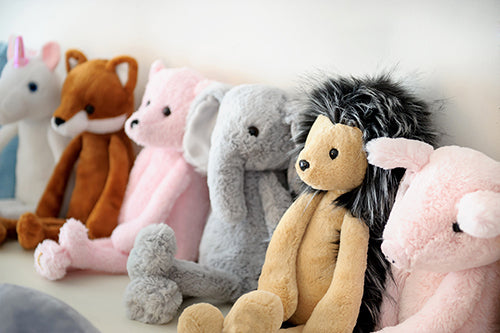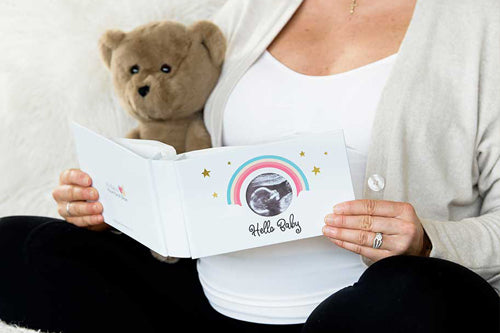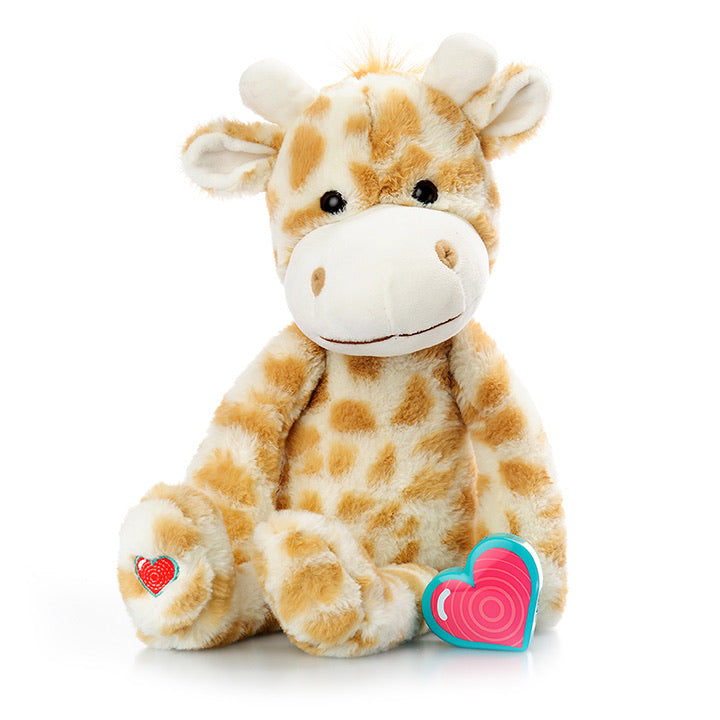My Son Has Sensory Processing Disorder
Perhaps you read my article about Emmett’s sensory meltdown a few weeks ago. I received an overflowing amount of love and understanding from so many of you, but I also received questions. Many parents wrote asking if their child could have sensory processing disorder, when Emmett was diagnosed, what the symptoms are, and how we are helping – not to forget the other popular question, how I stay sane. I began writing people back, and then I realized how our story may help others. 1 in 20 children has SPD, it’s time to talk about it. So here it is, our family’s condensed story with Sensory Processing Disorder. I have been fighting for my son since he was weeks old. He had a cough – and newborns shouldn’t cough. But yet, ‘nothing’ was wrong. How amazing the mother’s intuition is, though. Emmett never slept. NEVER. I’m not talking about the typical parental complaints here; I’m telling you that he never slept longer than a 45 minute stretch at a time from birth until age 2. When he was an infant, I could not lay him down to sleep because he would cough and turn purple around his mouth. I finally thought to record this around 10 months postpartum. For 10 months, I had not slept unless I was sitting up straight while holding my baby. The video was taken seriously and we were immediately brought in for blood and skin tests. Emmett was severely allergic to eggs, which I was eating every day, and he was consuming through my milk.
We thought that was the answer: a food allergy. I eliminated eggs, and Emmett stopped turning purple. In all honesty though, this was the moment we realized so much more. Emmett surpassed a year of age and landed into toddlerhood with a bang. He was gorgeous and loving, but he still didn’t sleep. He wouldn’t let a blanket touch him and he hated any structured clothing. He also had no interest in food. He nursed close to 30 times in every 24 hours. I’d love to say that’s an exaggeration, but I actually logged it. He couldn’t transition into a different environment (a play date, the beach, the library, the car, anywhere really) without nursing extensively. He depended on me for nourishment and comfort – and I was exhausted. And then came the meltdowns. These were not ‘tantrums,’ no no no. A sensory meltdown is ear-piercing and unending. It is triggered by something and consumes the child. I would describe it as ‘losing him in his hard moment.’ There is no reaching a sensory child in the depths of a sensory meltdown. These were happening throughout the day, every day.
The thing with SPD children is that when the moment is over, they are ‘back’ – if that makes sense. Emmett grabs my face and apologizes. He cannot explain why the moment happened, but he says he cannot think about anything other than what triggered it. I remember one afternoon I tried to buckle him into his car seat during an extremely long ‘hard moment.’ I spent over an hour in a parking lot trying to accomplish this task while being kicked, scratched, and screamed at by my then 2.5 year old. I also had a 4.5 year old and a 3 month old with me. The people passing me in the parking lot had looks of pity, sadness, shame, disbelief, and comments about my parenting made loud enough for me to hear. I cried. But Emmett was mine. I was determined to help him through this.
At a playground with my best friend one day, she noticed how Emmett began to have a hard moment and then how I nursed him for 45 minutes until he was settled enough to have fun. She looked at me and said, “That’s Ila, that was my life 2 years ago.” Her oldest has sensory processing disorder. I had never heard about it before that moment.
Sensory children are known as children who feel too much.
This made perfect sense to us. Emmett over-loves, over-cries, over-feels, over-does everything. Not in some small way, but in this huge cannot-be-controlled kind of way. My husband and I began researching and reading everything:- The Out-of-Sync Child series.
- Peaceful Parenting books.
- Blogs, journals, etc.
Little did I know that the diagnosis was not an end, but a beginning – a beginning to a journey we will travel for years to come, if not forever. Emmett was diagnosed at 2 years old as having sensory processing disorder. He is now 5. What have we learned in the last 3 years? Well, I’ve learned to breathe. He feeds off of my emotions. I have learned that sensory children can be both seekers and avoiders, that triggers can happen within any of the five senses and can also include overloading the emotions. Emmett did not speak until three years old, and has a severe speech delay, caused by what doctors believed was the lack of never hitting the deep sleep stage (which is when neurons fire in the brain to develop speech and other age appropriate milestones). This lack of speech made his sensory moments incredibly hard. Three years (and thousands of speech therapy hours) later, Emmett now has words; although he is still delayed. We have learned that so much of SPD can be linked to the gut, and we have had IgG testing done and now live on the Feingold Diet. This diet has changed Emmett. When we are strict (no processed foods, dyes, gluten, and other foods we have learned heighten his senses), we can go weeks without experiencing any SPD moments. Of course, we have never bought the child a pair of jeans because I pick my battles. Emmett will never wear underwear either. We have learned to work around and adapt to his triggers, and we are in the process of helping him learn the tools he can utilize to work through something before it overtakes him.
My emotional, loving, empathetic, all-in child has changed my life in a way I never expected when I became a parent. His older sister was meant to be his best friend, and his younger brothers will learn passion and compassion from him. A sensory child does not fit in a mold. A few common signs parents notice (this is not an exhaustive list by any means) include:
- Not handling things such as loud noises, being dirty, getting wet, wearing structured clothing, wearing loose clothing, wearing tight clothing, bright light, crowded spaces, having hair washed/brushed, getting fingernails or toenails cut, receiving an unexpected hug; walking barefoot, wearing shoes, getting buckled, or certain textures.
- Doesn't notice when touched; almost always prefers sedentary activities to active ones; seems unaware of bodily sensations such as heat, cold, or hunger
- Needs to be touching someone, something, or everything he passes. Hugs too strongly and doesn’t know his own strength.
- Dislikes foods with certain textures.
- Cannot be anywhere without his primary caregiver.
- Often struggles with speech.
- Trouble falling asleep or staying asleep.
- Is passive, quiet, slow to respond to directions.
- Is excessively cautious and afraid to try new things.
- Is upset by transitions or unexpected changes.
- Avoids group activities.
- Wants to spin, slide or swing excessively, and is constantly moving.
- Is accident-prone and has difficulty with physical skills such as catching a ball.
- Triggers are not self-inflicted; a SPD child does not choose to live this way.
- It is not his fault. It is not your fault. It is life and this child was meant to be yours.
- Yelling will not help, but instead will push him further into his sensory moment.
- Avoiding triggers may not always be possible.
- Get down on his level and try to make eye-contact. Speak soft words of love and try to hold him closely.
- Follow a routine.
- Discuss transitions and changes well in advanced.
- Love. Love. Love.
There is help. Occupational Therapy, chiropractic care, diet changes, and lifestyle adaptations will allow the entire family to experience less stress and more happiness. https://www.spdstar.org/basic/home-activities http://www.sensory-processing-disorder.com/sensory-processing-disorder-checklist.html http://www.ascentchs.com/developmental/sensory-processing/symptoms-signs-effects/[/vc_column_text][/vc_column][/vc_row]
Featured Articles
Guide to Birth: Pushing and Delivering
Nesting Parties: Better Than a Baby Shower?
Building a Thriving Veterinary Practice
Skip the Energy Drinks During Pregnancy (and after)


























